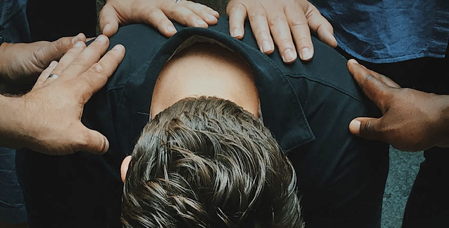Teen Therapy
All teens have problems, from mood swings to school issues, but sometimes the problems start to impair functioning in school or relationships where it’s important to seek professional help. In therapy, you meet with me individually to talk about your concerns such as depression, bullying, feeling overwhelmed, stressed, anxious, lonely, suicidal ideation, social anxiety, panic attacks, challenges adjusting to major life transitions, or school performance problems. You may be asked to identify your thoughts and feelings about situations. I teach you how to gain control of focus in order to improve emotional states. I provide education around the power of posture and body movement/motion in positively influencing emotions. Teen therapy has many characteristics of adult therapy, but often spends more time connecting and building trust. I provide face to face and/or Telehealth therapy options. I use an Eclectic approach consisting of evidenced based therapies including CBT (Cognitive Behavioral Therapy), person-centered therapy, strength-based approach, and motivational interviewing. I use elements of psychodynamic therapy, DBT (Dialectical Behavioral Therapy), supportive therapy, and solutions focused therapy. I provide Psychoeducation, behavioral activation and relaxation/mindfulness strategies as appropriate.
Counseling Troubled Teens
Counseling starts with the belief that there is still hope while building rapport and trust to help you feel safe and secure. I will learn about your story in an initial assessment in order to better understand your thoughts, emotions, and behaviors. We address any barriers towards working together. We work together towards clear goals, and start with simple, achievable steps. You are empowered with choices and skill building activities. I teach you how to better manage emotions such as anger and fear, solve problems, make responsible decisions, increase confidence, improve communication and relationships, resolve conflict with others, respond in a non-violent manner, and improve academic achievement. During our counseling sessions, I will use evidence based approaches, primarily CBT (Cognitive Behavioral Therapy), MI (Motivational Interviewing), and DBT (Dialectical Behavioral Therapy). However, I use an Eclectic approach which also includes ART (Aggression Replacement Training) and other techniques as appropriate, listed at the end of “Teen Therapy”.
At-Risk Youth
Because it can be stigmatizing, let’s define what we mean by “at-risk” youth or “youth at-risk”. In the broadest sense, “at-risk” suggests a vulnerable person, in this case a child or adolescent, in need of help who face threats to a successful transition into adulthood. Success can include academics, job readiness, ability to be financially independent and a positive contributor to society by avoiding a lifestyle of crime. Characteristics of at-risk youth include: serious emotional, mental or behavioral disturbances, living in a stressful family environment, being neglected or abused, lack of emotional support, involved with delinquent peers or gangs, involved in drugs or alcohol, beyond the control of parents, parents unsuccessful efforts in maintaining family structure, truancy, lack of interest in academics, disconnection from the school environment, and behaviors creating serious risk of harm to the health, safety, and welfare of youth or others.

